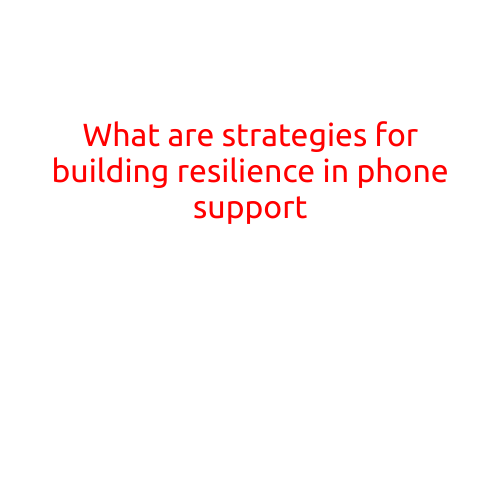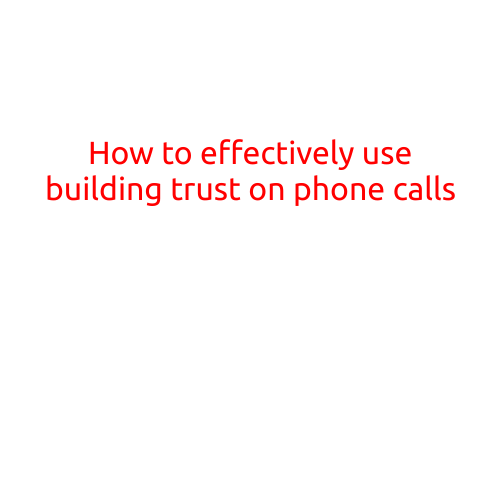
What are Strategies for Building Resilience in Phone Support?
As a phone support agent, dealing with frustrated customers, tight deadlines, and high-pressure situations can take a toll on your mental and emotional well-being. Building resilience in phone support is crucial to maintain your performance, job satisfaction, and overall health. In this article, we’ll explore strategies to help you develop resilience and thrive in a demanding phone support role.
1. Set Clear Boundaries
Establishing a healthy work-life balance is essential to building resilience. Set clear boundaries between your work and personal life to avoid the blurred lines that can lead to burnout. Practice self-care by setting realistic expectations, prioritizing your personal well-being, and respecting your time off.
2. Develop Emotional Awareness
Phone support can be an emotionally demanding job, requiring you to navigate challenging customer interactions. Developing emotional awareness is crucial to recognize your emotions, empathize with customers, and manage your response to difficult situations. Practice mindfulness, self-compassion, and emotional regulation to build emotional resilience.
3. Focus on Problem-Solving
Instead of getting frustrated with customers’ concerns, focus on finding solutions. Developing a problem-solving mindset helps you approach each call as a new opportunity to help, rather than a source of stress. Break down complex issues into smaller, manageable parts, and celebrate small wins to boost your confidence and morale.
4. Prioritize Communication
Effective communication is key to building trust and resolving issues efficiently. Practice active listening, clarify customer concerns, and provide clear instructions to avoid misunderstandings. Open-ended questions can help you gather more information and show customers that you’re genuinely interested in resolving their issues.
5. Build a Support Network
Surrounding yourself with a supportive network of colleagues, friends, or family members can be a lifesaver in phone support. Share your experiences, swap tips, and lend a helping hand to build camaraderie and a sense of belonging. A strong support network can also provide emotional support and help you bounce back from challenging situations.
6. Develop a Growth Mindset
Embracing a growth mindset in phone support means viewing challenges as opportunities to learn and grow. Focus on continuous improvement, seek feedback, and acknowledge your mistakes as valuable learning experiences. Celebrate your successes and recognize areas for improvement to stay motivated and engaged.
7. Practice Self-Care
Phone support can be physically and mentally demanding, making self-care essential to building resilience. Prioritize activities that bring you joy, practice relaxation techniques like meditation or deep breathing, and take regular breaks to recharge. Adequate sleep, healthy eating, and regular exercise can also help reduce stress and improve your overall well-being.
8. Seek Professional Help
At times, even with the best strategies, phone support can become overwhelming. Don’t hesitate to seek professional help if you’re struggling with burnout, anxiety, or depression. Mental health professionals can provide invaluable support, guidance, and stress management techniques to help you develop resilience and thrive in your role.
Conclusion
Building resilience in phone support is crucial to maintaining a positive attitude, job satisfaction, and overall well-being. By setting clear boundaries, developing emotional awareness, focusing on problem-solving, prioritizing communication, building a support network, developing a growth mindset, practicing self-care, and seeking professional help when needed, you can develop the skills and strategies necessary to thrive in a demanding phone support role.





